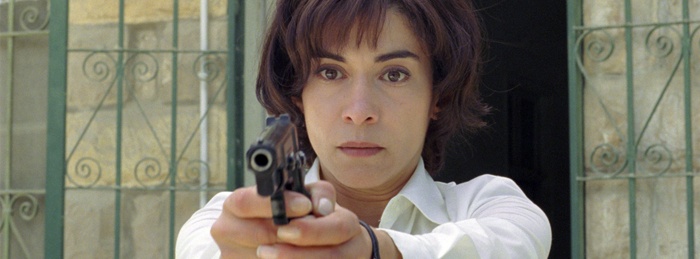Review: Incendies
A worthy Academy Award nominee, Denis Villeneuve’s adaptation of Wajdi Mouawad’s stage play is as difficult to follow as the conflict that forms its backdrop. Instructed to find their unknown (and possibly non-existent) father and brother in mother Lubna Azabal’s will, French-Canadian twins Mélissa Désormeaux-Poulin and Maxim Gaudette head to Lebanon, where Azabal was a […]

A worthy Academy Award nominee, Denis Villeneuve’s adaptation of Wajdi Mouawad’s stage play is as difficult to follow as the conflict that forms its backdrop. Instructed to find their unknown (and possibly non-existent) father and brother in mother Lubna Azabal’s will, French-Canadian twins Mélissa Désormeaux-Poulin and Maxim Gaudette head to Lebanon, where Azabal was a political prisoner during the Civil War. The film then intercuts Azabal’s torture with her children’s attempts to retrace their family tree, in the process uncovering her – and her homeland’s – secrets.
Because of the dual narrative, the characters in the present are often little more than intermediaries between us and Azabal’s story, passing on the past in fractured monologues and mistranslations. But every time the film begins to feel more like a history lesson than a drama, it explodes into action. Witness the devastating desert ambush, or Désormeaux-Poulin’s symbolic splash across a snow-white swimming pool.
As well as moving performances, the film benefits from André Turpin’s agile cinematography, which follows the characters at shoulder height so we feel like we’re walking in their shoes. It’s only appropriate – they’re following in their mother’s footsteps – besides, this is a film about compassion and understanding, albeit an extremely challenging one.
In such a dense, desolate atmosphere, even the accompanying Radiohead songs make sudden, shimmering sense – despite the fact that one is sung backwards. “You and whose army?” threatens singer Thom Yorke, as soldiers shave the heads of sad-eyed children. “You and your cronies. You forget so easily.” If only everybody could.





















